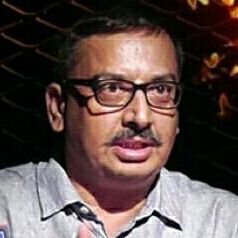
PANAJI: In probably a first, embassies from main source countries of sex trafficking – Kenya, Uganda, Nepal, and Bangladesh – have assured to collaborate with the Goa government and NGO Anyay Rahit Zindagi (ARZ) to support not only the rehabilitation of rescued victims but also the prosecution of traffickers.
On the concluding day of the two-day international consultation on “Sex Trafficking in Goa: Situation and Intervention (2019-2024)” on Thursday, ARZ Director Arun Pandey presented a detailed profile of traffickers, their modus operandi, and the type of assistance victims seek after being rescued.
After the presentation, representatives from these embassies resolved to work with government agencies and the NGO to prevent the trafficking of vulnerable girls, help in the rehabilitation of rescued victims and assist in prosecuting traffickers. The embassies also agreed to help identify and facilitate the victims’ testimony in court, either via video conferencing or in person, during the trials against the accused in Goa.
The state has recorded rescues of a total of 172 girls and women and the arrest of 124 traffickers linked to these operations from 2019 to August 2024. Of the total rescued victims, 138 were of domestic origin while the remaining 34 hailed from countries including Nepal, Bangladesh, Kenya, Uganda, and in some cases, Bhutan, Turkmenistan, Uzbekistan, and Kyrgyzstan.
Details shared during the conference also revealed that in North Goa, police stations with higher tourist activity, such as Calangute and Anjuna, conducted the most rescue operations in human trafficking cases from June 2019 till August 2024. Calangute Police Station led with 19 rescues (25.33 per cent of the total), followed by Anjuna PS with 11 rescues (14.67 per cent). In South Goa, Colva PS conducted six rescues (8 per cent), followed by Verna PS with three rescues (4 per cent), whereas others such as Fatorda and Vasco PS conducted fewer operations. The Crime Branch conducted 26 rescues (34.67 per cent).
The largest group of rescued victims – 88 in all – were within the range of 18–25 years, indicating that young adults are also highly vulnerable to trafficking. The ARZ report stated that the impact of COVID-19, which disrupted education and increased unemployment, particularly among educated youth, exacerbated this vulnerability.
“The 26–35 age group accounted for 72 rescues, indicating that women in their late 20s and early 30s are also at significant risk. Many of these cases involve women who lost their jobs during the pandemic, depleted their savings, and became susceptible to trafficking. In the 36 and above age group, there were 11 rescues, showing that while comparatively less, older women are exploited too,” it stated.
Many rescued victims in Goa had been trafficked as minors, particularly from states such as Maharashtra, West Bengal, and Delhi, having years in the illicit trade. The report further stated that the majority of rescued victims are unmarried, often the primary breadwinners for their families.
